Undergraduate Majors
Geography Major
The Geography Major, which was started in 1935, offers a unique opportunity to study wide-ranging topics, from Japanese historical and cultural geography to advanced geography encompassing natural, social, and human sciences. Fourteen leading academic staff members specializing in all types of fields meet the diverse demands of students, businesses, and the community. Students majoring in geography have access to rich resources and facilities, including state-of-the-art Geographical Information Systems (GIS), enabling students and staff to engage in many cutting-edge projects. Our recent research topics include human impact on environmental changes and natural hazards, and our outputs have brought practical benefits to society. The Geography Major has played a major role in “Digital Humanities Center for Japanese Arts and Cultures” (since 2007) and “Disaster Mitigation of Urban Cultural Heritage” (since 2008) of the Global Center of Excellence (COE) Program* funded by the Japanese Ministry of Education and Science and also contributes to the accumulation of academic knowledge.
* The Global COE Program was initiated by the Japanese Ministry of Education, Culture, Science and Technology [MEXT] to further strengthen educational research throughout Japan. Selected universities were chosen to lead different research programs, which are divided into five fields of research: life sciences, chemistry, information sciences, humanities, and so on. With special funding from MEXT, these institutions will lead Japanese research and education and will endeavor to be the best in the world.
Reasons to Study Geography at Ritsumeikan University
- Fieldwork-based education enhances students’ general skills.
- The major offers students opportunities to acquire geographic skills, such as GIS, cartography, and surveying skills.
- Students can study a wide range of geographical topics, from human geography (cultural geography, historical geography, and so on) to physical geography (climatology, hydrology, disaster studies, and the like) to geographical information studies (GIS, remote sensing, quantitative geographical analyses, and so forth).
List of Lecture
Regional Tourism Major
The objective of the Regional Tourism Major is to understand the contemporary phenomena of tourism from the aspects of geography, sociology, and human anthropology. Students learn various theories and concepts of tourism and how they link to the practice of tourism. Moreover, they also learn how to collect and analyze tourism data (both primary and secondary data). To cope with the increasing globalization of tourism, the major emphasizes global issues in tourism. Students are advised to improve their international communication skills and join a fieldwork trip to Malaysia and Singapore offered during the major. Students will gain the ability to solve and alleviate complex issues in contemporary tourism following objective identifications in global, national, regional, and local contexts.
Reasons to Study Tourism at Ritsumeikan University
- Students will gain the ability to capture, analyze, and present complex phenomena of contemporary tourism that significantly impacts economics, society, culture, and natural environments.
- This major offers students opportunities to learn the theories and concepts, as well as the practical training, of tourism.
- Fieldwork trip to Malaysia and Singapore (as part of the lecture) will serve to improve students’ understanding of the international community and will enhance their international communication skills.
List of Lecture
Introduction to Human Geography
Humans who engage in the activities of their day-to-day lives on the earth’s surface, whether it be in a farming village or in a large urban center, have always existed within these environments in particular ways and acted with particular senses of awareness of the environments around them. This class will examine these matters. It will also consider how human beings have used the land in their economic activities and built and reorganized their own lives and cultures. The field that considers these matters is called “human geography,” and these lectures will provide a general overview of this field.
Introduction to Physical Geography
Students will study, in a systematic fashion, matters such as the academic history of natural geography, research content, and research methods. Particular attention will be paid to areas like topography and vegetation, climatology and meteorology, and hydrology. Through these areas, students will think about the relationship between human activities and the natural environment, by analyzing the changes in humans’ disaster awareness and various natural disasters such as earthquakes and volcanic eruptions.
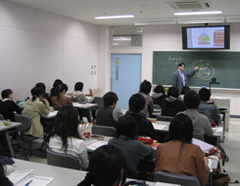
Basic Readings in Geography I and II
Following an introductory seminar and lectures in the first year, students in this class develop reading skills, which are invaluable for thesis writing. The seminar will encompass the following: selection of academic literature about the research topic, critical readings, summarizing reading materials, and constructing a research proposal based on existing literature.
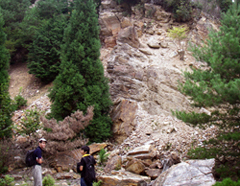
Environmental Geography
The objective of this lecture is for students to understand various environmental issues that human beings encounter. The topics are issues of gavages, food and agriculture, disease, noise, and ecological damage.
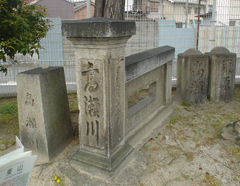
Historical Geography
In this lecture, students explore spatial changes of the ancient and medieval periods, primarily focusing on the spatial changes of Kyoto in the Heian period in consideration of local politics, rituals, customs, and the natural environment.

Rural Geography
The goal of this lecture is for students to understand the social structures of rural areas using topographic maps. Moreover, the lecture tackles current issues that many rural areas in Japan face, such as urbanization, depopulation, and an aging population.

Urban Geography
The objective of this lecture is for students to understand the basic theories and concepts of urban geography, which explores the complicated structure of urban areas from a geographical perspective. The topics in this lecture include urbanization, typologies of urban cities, structures of urban cities, spatial behavior of urban residents, urban landscapes, and sustainable issues in urban cities.

Economic Geography
In this lecture, students explore local, national, and global economics from geographical and spatial perspectives. The topics discussed in this lecture are spatial behavior of consumers, labor and capital mobility, transnational companies, globalization and regionalism/localism, and North-South issues.
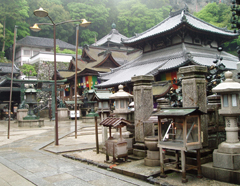
Cultural Geography
Students explore “landscapes” and “images of places” from cultural and social contexts. Specifically, students will examine how to construct and interpret landscapes and place images and how they lead to the consumption of places.
Investigation Method in Geography
This class will further deepen the desk research techniques learned in “Introduction to Regional Investigation.” This will include not only the ability to read and understand maps, documents, and statistics, but also such things as preparing survey forms and contacting local governments and related agencies. By conveying data in graphs and tables, students will also learn the methods of explaining data in a geographically sound manner.
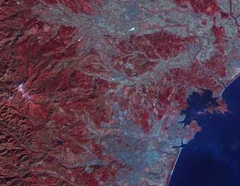
Remote Sensing
This laboratory class helps students understand the theory of remote sensing, which is the method used to survey, measure, classify, and detect objects of the earth from satellites and airplanes. Moreover, students will improve their skills of analyzing data and explore its possible application to geography research.
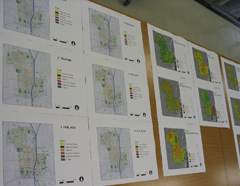
Practice of Map Drawing I and II
In this lecture, students will develop map-drawing skills, which are invaluable for geographical research and the research presentation processes. In addition to drawing maps by hand, students will learn digital cartography skills using Adobe Photoshop and Illustrator.
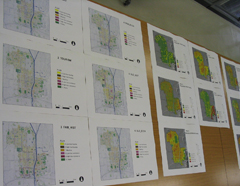
Geographical Information Science
Students in this lecture learn the basic theories, concepts, and traits of geographical information that can be obtained from maps. Moreover, advancements in digital mapping are also explained.
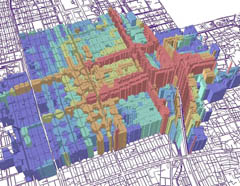
Regional Statistical Analysis
This lecture is designed to develop skills of statistical analyses, which are an important skill for geographical research. First, students learn the basic theories of statistics. Then they practice data analysis techniques using Microsoft Excel, SPSS, and Arc GIS.
Geographic Field Research I
Students will learn the field research methods that are important to area research. In this survey practice, the students themselves will carry out the observational surveys and listening surveys that are necessary for the collection of data. This will include not only the ability to read and understand documents and statistics, but also such things as preparing survey forms and engaging in on-site contact with local governments and related agencies. After desk research like this, students will carry out a multi-day (staying two or three nights) on-site survey. Survey locations in previous years have included Nagano (Matsumoto City) and Okinawa (Naha City).
Geographic Field Research II
Students will learn the field research methods that are important to area research. The course, including field research (mostly day trips), is determined according to the theme set by the instructor in charge. On-site research will be conducted based on desk research including textual research, the reading of statistics and maps of the region under investigation, and the learning of basic methods necessary to the understanding and analysis of regional characteristics. By conveying data in graphs and tables, based on the documents (etc.) acquired at the site, students will also learn the methods of explaining data in a geographically sound manner.
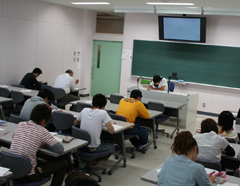
Advanced Seminar in Geography I and II
This seminar provides students with opportunities to develop skills to engage in thesis writing, which is compulsory for graduation. In class I, which is held in the first semester, students determine the goals and objectives of the thesis and then conduct a literature review. Following the fieldwork over summer vacation, they present their research findings in the second semester (class II).
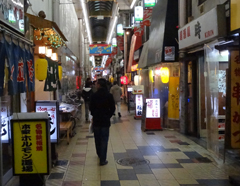
Selected Problems in Geography
This module is designed to provide students with an advanced understanding of geography topics that were lectured on in the second year. The topics in this module range from cultural and historical geography to physiognomy and environmental archeology.
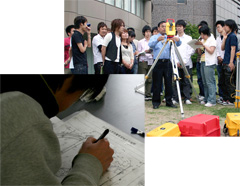
Surveying Theory and Fieldwork and I and II
This class helps students understand the theory of surveying and helps them develop practical skills in surveying, which is the core of mapping techniques. The lecture encompasses (1) understanding the theory of surveying, (2) practicing various survey techniques, (3) producing maps after surveying, and (4) presenting the maps.
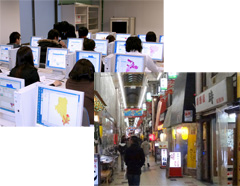
Applied Research in Geography I and II
This class is designed to enhance students’ research skills and abilities. The contents in this class are minor research methods in geography, such as participant observation, focus groups, observation/experiments in physical geography, reading historical materials, and so on.
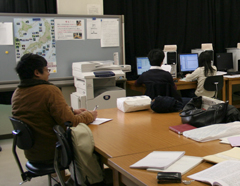
Advanced Seminar in Geography III and IV
The purpose of this seminar is to complete a thesis, which is a compulsory requirement for graduation. In the first semester (class III), students reexamine their draft thesis with reference to the supervisor’s advice. They refine their thesis and conduct an oral presentation before submitting the thesis in the second semester (class IV).
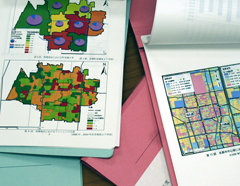
Graduation Thesis
Students who intend to graduate are required to submit a thesis, which is undertaken in the third and fourth years in Seminar in Geography I, II, III, and IV.
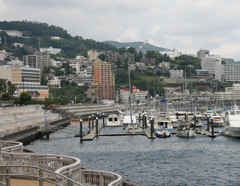
Outline of Regional Tourism Studies I
This lecture approaches the phenomenon of tourism from the standpoints of geography, cultural anthropology, sociology, and history. Students will acquire basic knowledge of tourism theories and concepts. Examples of topics in this class are spatial distribution of tourist attractions, lifecycles of destinations, community development and tourism, demographical and behavioral traits of tourists, and related topics.
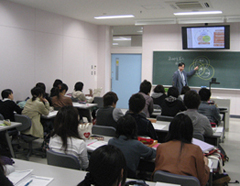
Basic Readings in Regional Tourism Studies I and II
Following an introductory seminar and lectures in the first year, students develop reading skills, which are invaluable for thesis writing. The seminar encompasses the following: selection of academic literature on the research topic, critical readings, summarizing reading materials, and constructing a research proposal based on existing literature.

Introduction to Regional Tourism II
This lecture approaches the phenomenon of tourism from the standpoints of geography, cultural anthropology, sociology, and history. Students will acquire the basic knowledge of tourism theories and concepts. Examples of topics covered in this class are spatial distribution of tourist attractions, lifecycles of destinations, community development and tourism, demographical and behavioral traits of tourists, and related issues.
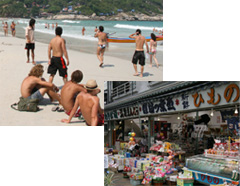
Regional Studies in Tourism
In this module, students explore the relationship between the phenomenon of tourism and the local traits of a specific destination. In other words, the lecture tries to understand how unique characteristics of the locale, such as the natural environment, culture, customs, and economic situations reflect on the tourism there.
Field Research in Japan
This class will further deepen the field research techniques learned in “Introduction to Regional Investigation.” Students will perform research on the tourism phenomenon in a particular region in Japan and the problems occurring there, and thereby learn about the processes from analysis to discussion and reporting of results. This practical training is noteworthy in that, unlike in first year, all of the above processes are carried out in the form of group work.
Field Research in Foreign Countries
Students will acquire a diverse range of perspectives in understanding Asia by actually visiting the locations and studying the environments, histories, cultures, societies, religions, and so on around the Asian world, with a focus on East Asia (Taiwan, etc.) and Southeast Asia (Malaysia, etc.). Students will travel abroad and take lectures at places like Universiti Sains Malaysia (Penang) and Shanghai Normal University (Shanghai) while interacting with the local students. Field research will be carried out in the Malaysian cities of Penang, Kuala Lumpur, and Malacca, and in Taipei and Shanghai.
Cultural Studies of Tourism Space
When considering the questions of what attraction a particular region has as a tourist destination, and in what kind of relationship and in what kind of process it was created, a cultural perspective is absolutely critical. Additionally, focusing on culture allows us to appropriately consider the phenomena that occur at tourist destination regions when various different people such as tourists and the local community, as well as various images and other things, come into contact with each other. This lecture will allow students to study regions considered tourist destinations, with an eye on culture, from the perspective outlined above.
Research Methods for Tourism Studies
In order to consider the relationship between tourism and the local region, it is important to research the region in question oneself. When investigating a particular region, there are two types of research: “quantitative research” and “qualitative research.” Quantitative research includes such methods as using a questionnaire and statistically processing and analyzing the resulting data. Qualitative research, on the other hand, includes things like conducting interviews with living individuals and analyzing diaries and letters of those who are no longer accessible to us. In both of these methods, it is absolutely essential, if one is to engage in valid and reliable research, to acquire the appropriate knowledge and skills. This practical training will allow students to learn just what is meant by “the appropriate knowledge and skills” in relation to research.
Map Drawing for Tourism Studies
When explaining the phenomenon of tourism, the role played by maps is enormous. Maps that show the location of sightseeing spots and the distribution of tourist facilities are not only valuable to tourists but also important to tourism research. For this reason, this class aims to teach the map-drawing (thematic map) technical skills that are necessary for understanding the flow of tourists and the various phenomena of tourist areas that accept them, from a geographic standpoint. In map drawing, we will use PC software (Adobe Illustrator) to create graphs. This practical training will start with the basic functions of Illustrator and move on to teach the skills needed to draw thematic maps.
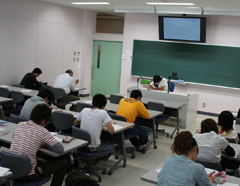
Advanced Seminar in Regional Tourism I and II
This seminar provides students with opportunities to develop skills to complete their thesis, which is compulsory for graduation. In class I, which is held in the first semester, students determine the goals and objectives of the thesis and then conduct a literature review. Following the fieldwork over summer vacation, they present their research findings in the second semester (class II).
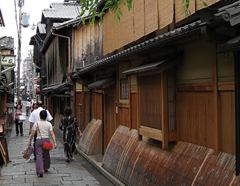
Special Lecture Series in Regional Tourism
This module focuses primarily on the negative aspects of tourism’s impact on destinations, such as environmental damage, cultural erosion, host-guest conflicts, and related issues. Students learn to identify the social and cultural meanings of contemporary tourism and the possibilities and limits of social developments through tourism.
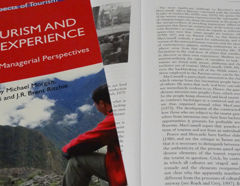
Reading of Foreign Text in Regional Tourism
This module develops students understanding of state-of-the-art tourism research on a global scale. Students in this class are required to read articles about specific topics written in English, summarize them, and present their main findings.
Advanced Field Research
This class aims to have students relate specific issues that are problematic in society to the phenomenon of tourism, carry out field research in collaboration with the local region, perform higher-level analysis, and ultimately consider policy solutions. In the form of a two- or three-night field trip, in principle within Japan, various issues will be addressed. Finally, students will prepare a results report, etc. and attempt to give back to the region in question.
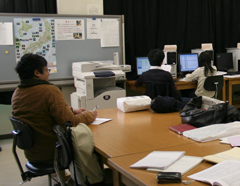
Advanced Seminar in Regional Tourism III and IV
The purpose of this seminar is to assist students in completing a thesis, which is compulsory for graduation. In the first semester (class III), students reexamine their draft thesis with reference to the supervisor’s advice. They then refine their thesis and conduct an oral presentation before submitting the thesis in the second semester (class IV).
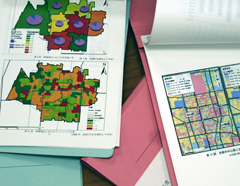
Graduation Thesis
Students who intend to graduate are required to submit a thesis, which is undertaken in the third and fourth years in Seminar in Regional Tourism I, II, III, and IV.
Introductory Lecture of Area Studies
This is a comprehensive introductory course on geography and regional tourism, and serves as an introduction to the study of the area research domain. Students will get an idea of just how exciting geography really is, and this will form the basis of their entry into area research. In order to deepen the knowledge acquired in this class, students are encouraged to take “Introduction to Human Geography,” “Introduction to Physical Geography,” and “Introduction to Regional Tourism I” in the fall semester.
Introduction to Regional Investigation
This class is aimed at students who have never performed regional investigation before, and is intended to teach them the skills that are necessary to plan and execute a regional survey. These skills include reading maps and creating thematic diagrams, designing questionnaires, aggregating and visualizing statistical data, basic field research, and practical training on geographic information systems. The goal is to have students acquire the ability to plan and execute a survey that is appropriate to the field and the subject of investigation, and to organize and map the results of research and analysis obtained in a comprehensible manner, based on a research theme that the student himself/herself is working on.
Regional Geography (The World)
Students of this course will learn about regional geography as it relates to a specific region overseas (the exact region covered differs according to the instructor). The class will provide an overview of characteristics of the region, such as politics, economics, society, culture, and natural environment, as well as the region’s relationship with Japan. Through the lectures, students will develop an eye for understanding the world of other cultures. The region covered may be one such as China, western Europe, the United States, Canada, New Zealand, etc.
Regional Geography (Japan)
Students of this course will learn about regional geography as it relates to a specific region within Japan (the exact region covered differs according to the instructor). The geographical features of the region in question will be approached from a variety of perspectives. The class will also aim to have students acquire a broad knowledge of the region, understanding how it is formed by a complex interplay of natural, historical, cultural, social, and economic factors. By learning how to see the region through the pursuit of a multifaceted understanding of its nature, society, and culture, students will deepen their thinking about the diversity of the region.
Introductory Seminar I and II
This class aims to allow students to acquire the basic knowledge that will be indispensable to study and research activities in the College of Letters and in their specific academic domain or major, and the basic skills needed for literature searches and reading comprehension. On top of that, through proactive methods like presentations and group discussions, the course aims to provide students with the ability to think independently and to be aware of and recognize problems. For students, this is to be the first hands-on active learning experience they have in the College of Letters.
Introduction to Regional Tourism I
The phenomenon of “tourism” can be studied from the perspectives of a variety of research fields, including geography, sociology, cultural anthropology, and history. The class will, through the examination of numerous case studies, provide students with the basic knowledge and complex way of thinking regarding the location development of tourist facilities, cultural changes in regional societies that take in tourists, regional development based on tourism, and the characteristics of tourist behavior as they differ based on gender, age, etc.
Introductory Literacy
This class was established to enhance those skills that are critical for study and research in university as well as the skills that are useful in communicating with the society and people around you. More specifically, the class is intended to allow students whose ultimate goal is to produce a graduation thesis to cultivate a sufficient level of Japanese writing ability, to acquire the IT knowledge and skills that are indispensable in modern society, to develop a sense of purpose for career-planning, and to acquire the basic knowledge and skills to lead a healthy university life.

Theory and Methods in GIS I and II
The objective of this course is for students to understand the theory of GIS, which is a necessary tool for state-of-the-art geographical researches. Moreover, the lecture teaches practical skills of GIS using internationally recognized GIS software: Arc GIS by ESRI.
